What?
The mov*ed IMPULSTAGE is our first in-person event to literally give and take impulses from other practices, disciplines and in conversation with each other to stimulate and reflect on our own teaching practices as well as setting new research trajectories into motion.
Daily impulses given in the form of 1,5 hr session will start the day, followed by a laboratory, a speed sharing and for those that can stay the day ends with a casual social hour enjoying the garden and surrounding nature of Lake Studios.
“Preparing for what?” is the common thread that will underpin this 5-day exchange format
This question can equally involve examining what key skills and techniques we should focus on when preparing students for careers in dance or movement-related fields, as well as the more open question to which a dance and movement/embodiment class itself can be a preparation. Preparation for what? To be in relation with? To take responsibility? To care? To build resilience? To breathe? To listen?
For whom?
Dance-or movement teachers in Berlin. Participation in mov*ed IMPULSTAGE is free! It is possible to come all 5 days, or only 1 day. The day starts at 10 am and will go until 15.30 pm maximum.
Detailed Schedule
The mov*ed IMPULSTAGE will develop over five days, from September 10th to 14th, Sunday to Thursday at the Lake Studios Berlin-Friedrichshagen.
- 10.00 – 11.30
→ Morning Impulse - 11.30 – 12.00
→ Snack - 12.00 – 14.00
→ Laboratory - 14.00 – 14.30
→ Speed Sharing - 14.30 – 15.30
→ Social Hour
Every day will start at 10 am with a session given by one of our guests, our Impulse-givers. 90 minutes of (for example) a speech eventually fading into a class or specific task related activity.
In a 30 minute Break between the Impulse and the Lab, we as the organizers will provide some snacks.
At 12 pm we will step into our Lab time, intended as a space of interactions with the others. The Impulse-giver will initiate the Lab, giving tasks, scores or questions to reflect on. We imagine the Lab as an open space.
Afterwards there will be a 30 minutes “Speed Sharing” time to harvest ideas and findings of the day. We don’t necessarily aim to find answers or strategies but rather to stimulate reflections on our practice as movement educators.
For the ones who would like to stay longer the day will finish with a “social hour”, from 14:30 to 15:30. A final time to enjoy together, either having lunch or taking a walk, to meet and socialize with colleagues and peers.
Our impulsgivers
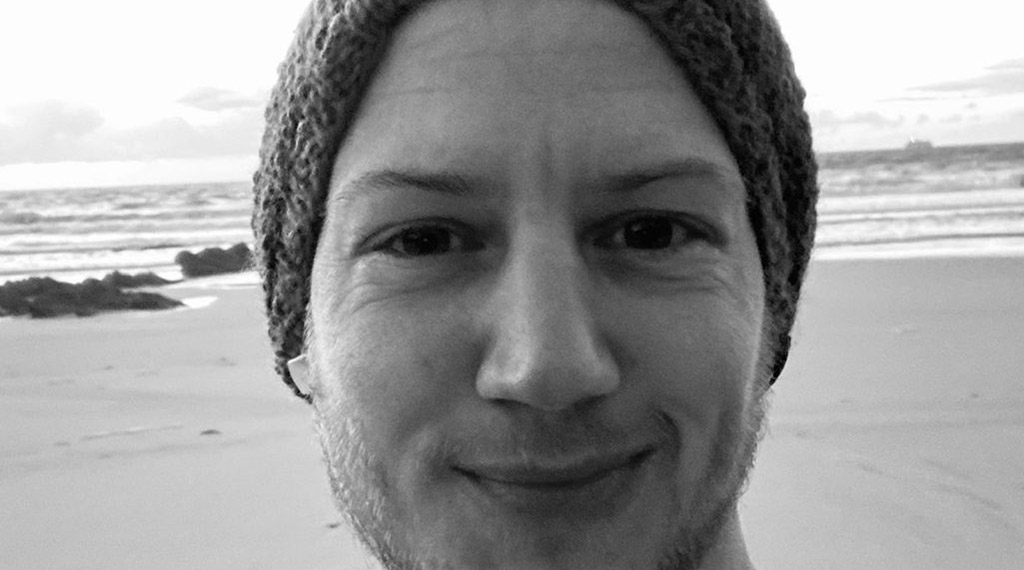
Jo Koppe
Queer somatic explorer, Continuum teacher
Sunday September 10th
PREPARING FOR THE UNKNOWN
In the somatic method Continuum we work with sound, breath and unpatterned (micro/macro)movement in order to slow down, tap into the depth of experience of our bodily existence, and open up portals of expansion, self-regulation and connection. Continuum extends an invitation to a very open-ended exploration of the emergent unfolding of our bodily (as well as mental and emotional) processes, and the unfolding mystery of our aliveness – an ongoing invitation to meet the unknown. Nevertheless, there are many possible answers to the question of what we are doing this for: to connect more deeply with our resources… to be able to expand our range of choices by breaking open our habitual ways of moving/ doing / thinking / feeling by engaging the question of „what else…?“ … to break through the limitations that cultural and societal norms have imposed on us (including the systems of oppression we are situated in) – transcending our „cultural anatomy“ to drop into experiencing our „primordial“ and „cosmic“ anatomy… to connect with a felt sense of our deep entanglement with all other life on this planet, which might help us make more sustainable choices, both individually and collectively… to train ourselves in the art of venturing into yet unknown territory rather than sticking to the old ways – which in the times of climate crisis might be a skill that is more needed than ever… or maybe much more modestly: simply to create the tiniest bit of newfound spaciousness around something that has been feeling tight and constricted before…
Jo is a Berlin-based facilitator and queer somatic explorer, with a background in the performing arts as well as in sociology and gender studies. After having worked as a dancer and performer for a good number of years (doing solo projects as well as collaborations, and having worked e.g. with Josep Caballero-Garcia, Keith Hennessy, Aurora Kellermann, with the inclusive performance company UnLabel in Cologne, and others; DanceWeb recepient 2015), they transitioned to a focus on somatic work in the recent years. Jo teaches the somatic movement practice Continuum, both in Berlin (e.g. with the queer bodywork collective Skinship) and online. He is white, German, able-bodied, neuro-divergent-ish, queer, and trans*.
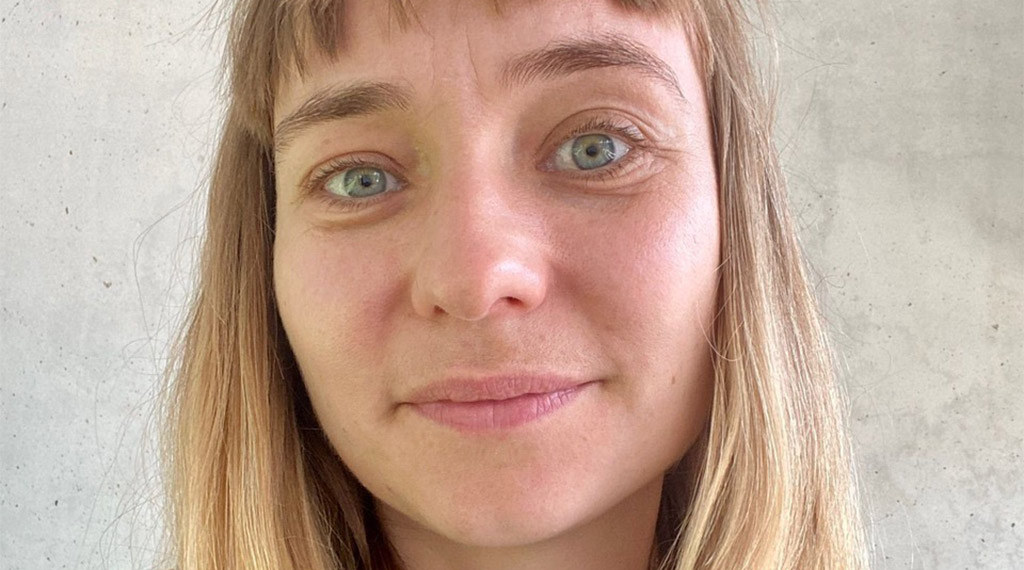
Sophie Reichert
Anthropologist – dance as a research practice
Sunday September 10th
SHAKING THE HABITUAL:
DANCE AS A RESEARCH PRACTICE
In this impulse, I will give insight into the research and writing of my doctoral dissertation on dance as research practice. We will consider the history of dance as research as well as examples from contemporary research practices and think together about the various values and uses of dance as research. What kind of knowledge and what kind of individual as well as social change yield movement-based creative processes? How can we describe and notate the practice and insights of dance research?
Anne-Sophie Reichert is a cultural anthropologist, interested in the history and practice of bodily, sensual and affective knowledges, bodily learning, expertise and skill. She received her PhD from the University of Chicago with a dissertation on contemporary dance as research practice. Furthermore, she is co-founder of ALASKA-Studio for Feelings, an arts-education initiative. She teaches anthropology of art, anthropological theory and feminist science studies and frequently collaborates with artists and scientists.
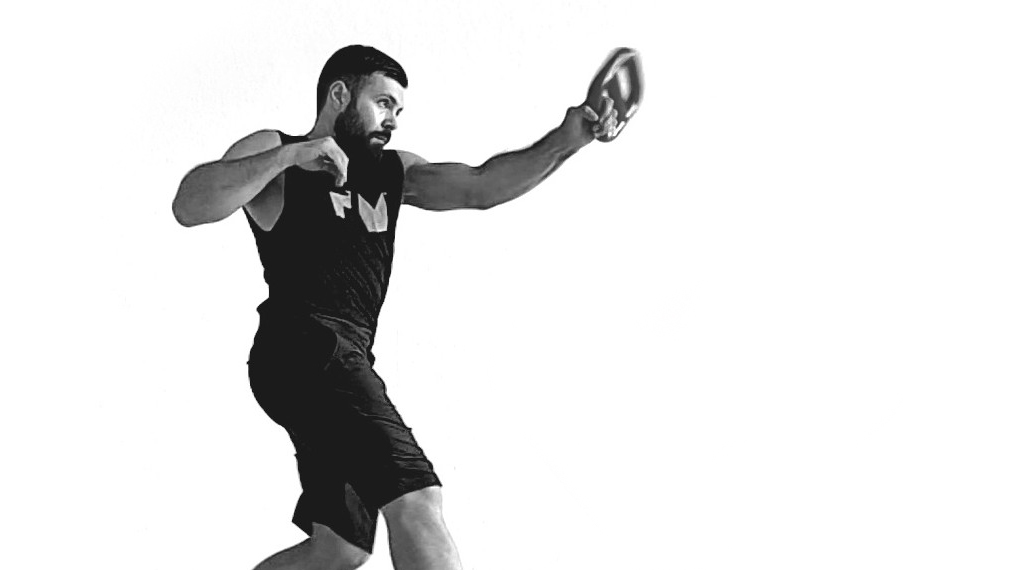
Tobi Portella
Physiotherapist, Fighting Monkey practitioner, martial arts
Monday September 11th
POWER TO THE STRUCTURE!
Mapping our bodies’ elastic architecture through kinetic exploration
What is „correct posture“? What is „good form“? Which are „functional“ movement patterns, which are not? Do we need to train our „fascial lines and slings“? These questions often arise from injuries or the fear thereof. In my work as a Physiotherapist I am constantly asked about them.
Practicing with FM abstract tools such as the 9Speedtool or the Sandbag, we map both the mechanical properties of said tools as well as ourselves. These tools serve us to explore the generation, the channeling and the absorption of force throughout our structure. Comparable to a sonar, the kinetic energy projected into them reflects back upon us. If we learn to listen, we can tap into our bodies’ innate ability to process and learn from movement stimuli and find individual answers and solutions to the questions above.
Born, raised and educated in Berlin. Physiotherapist and Martial Artist: I manipulate bodies, tools and weapons. After a few twists and turns my path has led me to Fighting Monkey Practice.
I work as an independent Physiotherapist and movement teacher in Berlin.
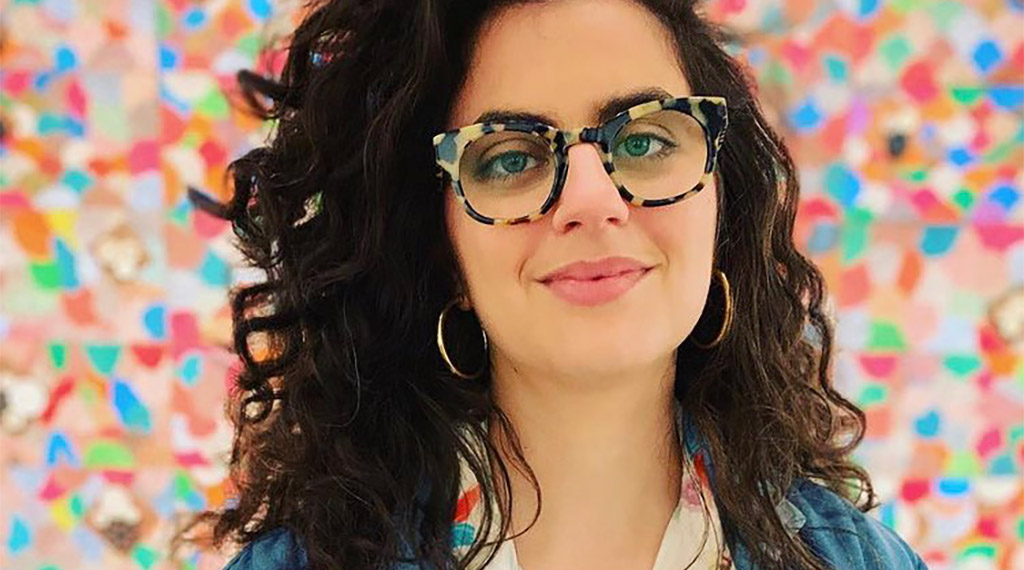
Cristina Leoni-Osion
Somatic Artist, Doula, Transformative Justice Practitioner
Tuesday September 12th
PREPARING TO SEE EACH OTHER : A SOMATIC PRACTICE OF RECOGNITION
Mary, I ask that you re—member what is dark and ancient and divine within yourself that aids your speaking. As outsiders, we need each other for support and connection and all the other necessities of living on the borders. But in order to come together we must recognize each other. Yet I feel that since you have so completely un—recognized me, perhaps I have been in error concerning you and no longer recognize you. – An Open Letter to Mary Daly, Audre Lorde
My facilitating process centers around identity, race, embodied (his)stories and ancestral inheritance. As a dance artist I prefer to move through questions, valuing process over product.
I am interested in holding space for challenging transitions. In my experience as a transformative justice facilitator working with young people I learned the value of deep listening and suspending judgment. In my practice as a community doula I learned to trust my presence and embodied instincts. As I fold these learnings into a movement practice I utilize facilitated conversation, fertile literature, reflective writing, ass-shaking, consensual physical contact, and social dances.
We will speak and move through experiences of migration, identity, and (dis)integration. I start from an assumption of a room full of expertise and remain flexible to respond to the needs of the people and space. I look forward to guiding us through all our unique, but valid body and mind knowings.
Cristina Leoni Osion (she/they) is a white, femme, Mediterranean descendant, lover of the sea, and avid home gardener, born on the ancestral, unceded lands of the Powhatan and Monican people (Richmond, Va, USA). After having lived and worked in NYC, Berlin, and Jaffa-Tel Aviv as a young dancer they received their B.F.A. in Dance and Choreography from Virginia Commonwealth University and have continued to refine their skills in movement, facilitation, and support techniques. Cristina is currently based between Richmond and Berlin.
Cristina is currently practicing as a somatic artist, community circle facilitator, and full-spectrum doula and, through community and collaboration, they/we are continuing legacies of reproductive freedom, anti-racism, abolition, mutual aid, autonomy, and ancestral healing.
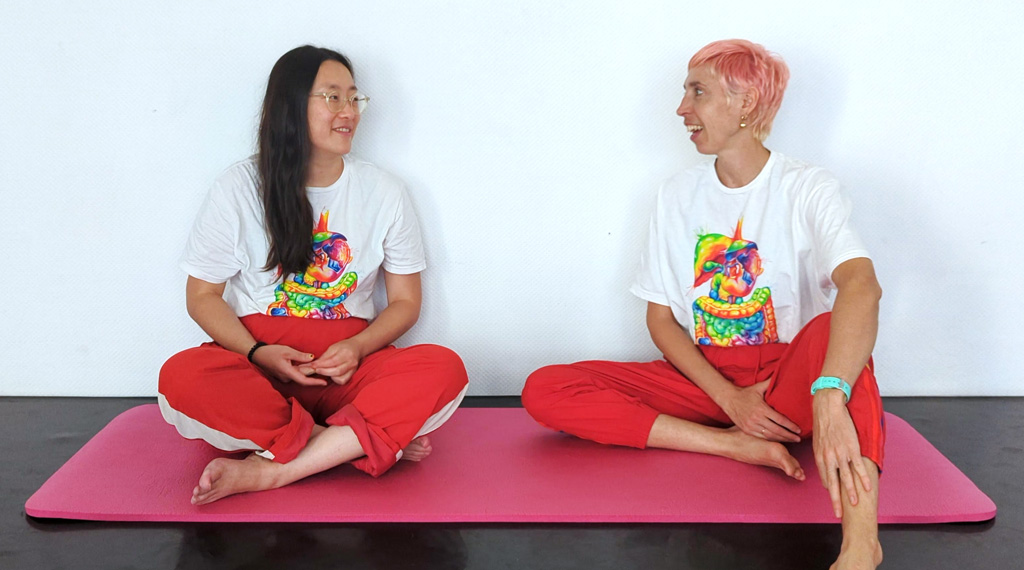
Akemi Nagao
& Sabrina Huth
Dance Artists & Choreographers
Wednesday September 13th
SATURDAY DIGESTION
You are not a machine, nor a slave to capitalist production industry. You are a divine human being. Please rest, meditate, daydream!
Saturday Digestion aims to stimulate creativity and resilience through a practice of collectively slowing down, self-listening, sharing and letting go of what is too tight or could be cleared out. Inspired by Barbara Dilley’s Contemplative Dance Practice (CDP) and recent research on the autonomic nervous system, each session is framed by a combination of meditation practice, movement practice, verbal/non-verbal individual reflection and collective exchange.
Nagao Akemi and Sabrina Huth are Berlin based dance artists and choreographers who met during their studies at HZT Berlin. Thriving within a strong artistic collaboration they have been developing a contemplative movement practice in which they explore active rest as a source of inspiration and form of resistance. Since 2020, they co-facilitate regular Saturday Digestion sessions for peers and students within different settings (UdK, HZT Berlin, Ponderosa, etc.).
More info @ nagaoakemi.com and sabrinahuth.com.
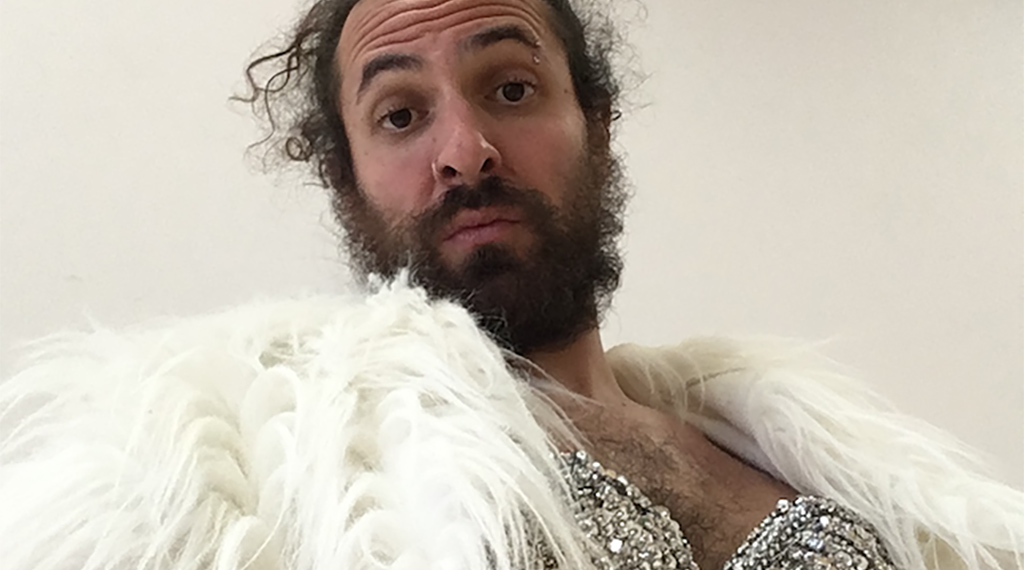
David Bloom
Choreographer, dancer, pianist, fermenting Jewish mystic
Thursday September 14th
THE DISCIPLINE GAME
I am interested in the role of hierarchy in teaching situations. Can hierarchies be part of a contemporary queer pedagogy? There tends to be a separation between very clear top-down hierarchies & right-wrong binaries (supported by institutions and grading systems) on the one hand, and attempts to completely flatten hierarchies in a we’re-all-in-this-together approach on the other. I am mostly in favor of the second, but i also see its potential limits, especially relating to learning a “craft” or a skill with more or less efficient or sustainable ways of practicing it. I also notice that the total lack of hierarchy can in fact be unfair to some students who come with a strong desire to “learn” in a traditional sense, or who might need a more directive kind of input. There could be an argument that these desires and needs are in fact socially constructed by a lifetime of hierarchical education, but this does not make them any less real. I believe that there is the possibility of deconstructing these patterns while simultaneously serving these needs. Drawing from my experience in the queer BDSM community, i am curious about hierarchies in teaching as a transparent and consensual game, in which teachers and students intentionally enter these “roles” for the duration of the class, without the roles affecting their position in some socially constructed hierarchy outside the classroom. The research question is primarily, what would it need to play this game consensually and ethically in an arts education context?
David Bloom is a choreographer, dancer, teacher, father, filmmaker, bodyworker, pianist, and fermenting Jewish mystic. Graduated from the M.A. Choreography course at HZT Berlin, danceWEB scholarship in 2012. David teaches in many contexts, including HZT Berlin, Tanzquartier Vienna, Tanzfabrik Berlin, Human Architecture Lab in St. Petersburg, K3 in Hamburg, the Masters of Contemporary Dance Education in Frankfurt, the Rietveld Academy for Fine Arts & Design in Amsterdam, & the ImPulsTanz Festival in Vienna. PhD candidate at Zurich University of the Arts and Linz Arts University. More info at: davidbloom.info